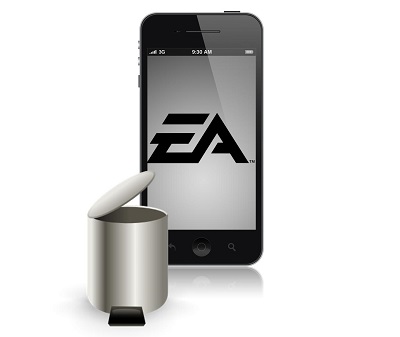Despite the fact that there have been many high profile cases of cyber attacks, apps remain vulnerable.
A recent study conducted by Bluebox has shown that virtually no travel apps have gone to the extent of adding encrypted data to protect them from mobile security breaches, and several are made with vulnerable code.
Even though there have been countless cyber attacks in recent headlines, added security hasn’t become a priority.
The attacks to companies as large as Target and Ashley Madison could have acted like a mobile security wake up call, but it’s clear that this has not been the case. Even though the evidence is strong that mobile app security is important to consumers, and there is great concern about hacks among companies and individuals, alike, app developers don’t seem to be building it in. Bluebox, a mobile app security and analytics company has conducted an analysis that has shown that the average person is surprisingly vulnerable to hacking through mobile devices.
The focus on the mobile security study was primarily on travel apps, which showed considerable holes.
 Among 10 top Android travel apps, Bluebox found that only one of them had encrypted the data that it was storing on the user’s device. Among 10 of the top iOS travel apps, there wasn’t a single one that had encrypted the data stored on the device. Furthermore, only 2 out of the 10 Android apps that were analyzed and only 1 of the 10 iOS apps analyzed had used certificate pinning. Bluebox explained that certificate pinning is “a key capability for securing app data in transit.”
Among 10 top Android travel apps, Bluebox found that only one of them had encrypted the data that it was storing on the user’s device. Among 10 of the top iOS travel apps, there wasn’t a single one that had encrypted the data stored on the device. Furthermore, only 2 out of the 10 Android apps that were analyzed and only 1 of the 10 iOS apps analyzed had used certificate pinning. Bluebox explained that certificate pinning is “a key capability for securing app data in transit.”
The lead security analyst at Bluebox Security, Andrew Blaich, explained that among the most important activities of a mobile app is to ensure that it is encrypting data that is written. He also pointed out that “We also want to make sure that the data is not easily accessible at all.” Of all the apps that were analyzed in this study, only one of them had actually employed data encryption.
That said, it was pointed out that in that instance, this mobile security step was “hard-coded into the source code,” which means that it would still be simple for someone to decrypt the data from the source code.
The company has taken several of these apps down, including “Real Racing” and “Dead Space”.
Electronic Arts (EA), the mobile games publisher, has now taken down a dozen mobile games from online marketplaces such as Google Play and from iTunes, without having given any prior public warning that these options would no longer be available.
This has arrived as quite the surprise to many players who had still been enjoying these titles.
The common belief is that the mobile games published by EA have been of exceptionally high quality and these titles were among the better options that had been available. Some players have responded with disappointment that these titles have been taken down. Some of the higher quality app titles that have been removed from the online stores have included “Flight Control,” “Dead Space,” Real Racing,” “Burnout Crash,” “Mass Effect Infiltrator,” and “Bejeweled 2”.
Two of the more popular mobile games from that list have been “Real Racing” and “Flight Control”.
 Those popular game apps were among the more surprising removals by EA. The reason is that they have been popular and were considered by many people to be among the mobile gaming opportunities that established devices such as tablets and smartphones as legitimate platforms for players.
Those popular game apps were among the more surprising removals by EA. The reason is that they have been popular and were considered by many people to be among the mobile gaming opportunities that established devices such as tablets and smartphones as legitimate platforms for players.
As there hadn’t been any announcement made by EA to warn the public, fans of those games have been quite disappointed as they were not provided with the opportunity to prepare for the removal. Beyond the disappointment is a general surprise felt by many as the games were taken down regardless of their high quality and the lengthy lists of positive reviews that they have received.
Still, there remain a number of mobile games that EA has continued to support, such as “EA Sports UFC Mobile,” and “The Simpsons: Tapped Out”. Each of those popular titles can still be downloaded as usual and the regular updates for those options appear to be continuing on without interruption. Some early reports have suggested that the games were taken down as a result of the most recent update to iOS 9 and because – as popular and high quality as they may have been – they might not have been earning very much money for EA.
 Among 10 top Android travel apps, Bluebox found that only one of them had encrypted the data that it was storing on the user’s device. Among 10 of the top iOS travel apps, there wasn’t a single one that had encrypted the data stored on the device. Furthermore, only 2 out of the 10 Android apps that were analyzed and only 1 of the 10 iOS apps analyzed had used certificate pinning. Bluebox explained that certificate pinning is “a key capability for securing app data in transit.”
Among 10 top Android travel apps, Bluebox found that only one of them had encrypted the data that it was storing on the user’s device. Among 10 of the top iOS travel apps, there wasn’t a single one that had encrypted the data stored on the device. Furthermore, only 2 out of the 10 Android apps that were analyzed and only 1 of the 10 iOS apps analyzed had used certificate pinning. Bluebox explained that certificate pinning is “a key capability for securing app data in transit.”
 Those popular
Those popular 